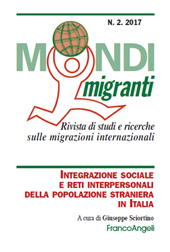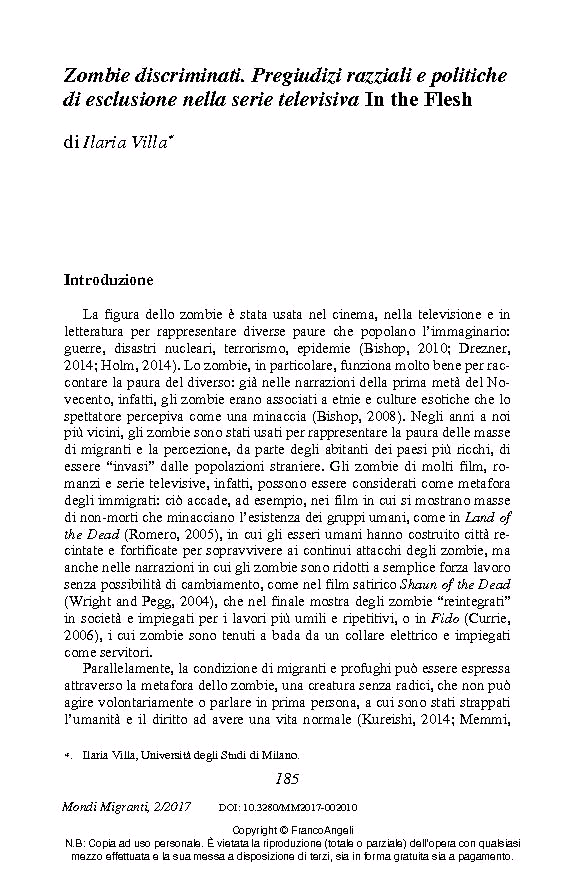Zombie discriminati : pregiudizi razziali e politiche di esclusione nella serie televisiva In the Flesh
185-203 p.
La figura dello zombie è stata spesso usata nel cinema, nella televisione e in letteratura per raccontare la paura del diverso. In questo filone narrativo si inserisce la miniserie televisiva Britannica In the Flesh (2013-2014), in cui, per la prima volta nella storia del genere, i protagonisti sono degli zombie che ricevono cure mediche. Nonostante, grazie alla cura, gli zombie abbiano riacquistato coscienza e non abbiano più fame di cervelli, la loro reintegrazione in società è ostacolata dalla maggior parte dei vivi, che continuano a provare repulsione per loro: in questo modo viene raccontata indirettamente la discriminazione dei migranti.
Il parallelismo tra zombie e migranti viene portato avanti su più livelli, di cui questo saggio propone un'analisi. L'aspetto interessante della serie non è soltanto l'attualità dei temi proposti, ma anche il fatto che lo spettatore viene portato ad interrogarsi sui propri pregiudizi e su aspetti relativi alla gestione dell'immigrazione che spesso vengono dati per scontati. [Testo dell'editore].
The zombie in cinema, television and literature has often been used to represent the fear of the other. A recent and very interesting example in this tradition is the British television series In the Flesh (2013-2014), which, for the first time in the history of the zombie genre, portrays zombies receiving medical treatment. Thanks to the treatment, the zombies are given back their consciousness and are able to live a normal life again, but many people fight against the reintegration of the undead: this is a way to represent the discrimination of migrants in contemporary society. The association between migrants and zombies can be seen and analysed in many aspects of the story, both in the personal and in the political sphere. The most interesting aspect of the series is that it does not only talk about discrimination, but brings the viewer to question their own prejudices and to consider certain assumptions related to immigration management which they may have never challenged. [Publishers' text].
Is part of
Mondi migranti : 2, 2017-
Articles from the same issue (available individually)
-
Information
ISSN: 1972-4896
DISCIPLINES
KEYWORDS
- Zombie, migranti, televisione, discriminazione, serie tv.
- Zombies, migrants, television, discrimination, tv series



